So, you’d like to keep backyard chickens? You’re reading all you can to learn what you need to know to get started, you have bought all the books and are scouring the Internet hoping to absorb the most important information. That’s a great start, but some lessons are painful and expensive to learn by experience, so in the hope of sparing some growing pains for those about to embark on chicken-keeping, I have asked my Facebook fans what they wish they had known before they began keeping chickens. The following are some of their replies and a few of my own.
Three words: JUST DO IT!
Check your local ordinances and zoning code regulations to make sure you can keep chickens legally. Don’t assume that it’s legal just because others in the neighborhood are doing it. Research whether there is a limit on the number of chickens, a permit required for a coop, whether are roosters allowed or any other restrictions. Don’t be afraid to petition local government to change the law to legalize chicken-keeping!
Do your homework…chickens are a serious commitment.
Buy from a reputable breeder or hatchery, not an auction or swap if at all possible. Have what they need before they arrive.
A hen does not necessarily lay an egg every day. There are many factors that play a role in egg-production– some can be influenced by you, but others cannot.
Do it right the first time and don’t cut corners. Get/build a bigger coop than you think you want/need. Chicken Math is a force to be reckoned with.
Coop placement is important. (shade in summer, dry location in rainy climates) Make the coop and run “people friendly” to make cleaning and maintenance easier.
Don’t plan on just getting a few… it’s an addiction. There will always be more than you expected.
Even when purchasing female chicks, (aka: sexed) vent sexing is only 90% accurate. Have a plan for roosters that cannot be kept.
Make sure you have a well stocked first aid kit and an area where sick or injured birds can be kept away from the flock.
Chicken wire will not protect chickens from predators, only hardware cloth can.
Research the different breeds as some do better in the heat, some do better in the cold, some lay more eggs than others, some are more inclined to brood and some are more or less friendly than others.
Put sand in the run to keep it from getting muddy. Using sand for litter inside the coop makes cleaning it much easier and creates a healthier environment for the chickens in all climates.
That chicken scratch is NOT chicken feed and obesity is a major problem in backyard chickens.
Always have an escape plan from inside the chicken coop and run. If there is any way to get locked inside, it will happen when it is least convenient. The pink rope on the latch to this run door opens the latch from inside the chicken run.
Mulch in landscaped beds doesn’t stand a chance. Chickens will take dust baths in the location you least want them to.
How much I would love them and how much they would change my life. Wish I had had chickens years ago!
And a personal favorite, from Tiffany M.: “Make sure they are signed up for your blog and ‘like’ you on Facebook.”☺
Kathy Shea Mormino
Affectionately known internationally as The Chicken Chick®, Kathy Shea Mormino shares a fun-loving, informative style to raising backyard chickens. …Read on


shop my SPONSORS
So, you’d like to keep backyard chickens? You’re reading all you can to learn what you need to know to get started, you have bought all the books and are scouring the Internet hoping to absorb the most important information. That’s a great start, but some lessons are painful and expensive to learn by experience, so in the hope of sparing some growing pains for those about to embark on chicken-keeping, I have asked my Facebook fans what they wish they had known before they began keeping chickens. The following are some of their replies and a few of my own.
Three words: JUST DO IT!
Check your local ordinances and zoning code regulations to make sure you can keep chickens legally. Don’t assume that it’s legal just because others in the neighborhood are doing it. Research whether there is a limit on the number of chickens, a permit required for a coop, whether are roosters allowed or any other restrictions. Don’t be afraid to petition local government to change the law to legalize chicken-keeping!
Do your homework…chickens are a serious commitment.
Buy from a reputable breeder or hatchery, not an auction or swap if at all possible. Have what they need before they arrive.
A hen does not necessarily lay an egg every day. There are many factors that play a role in egg-production– some can be influenced by you, but others cannot.
Do it right the first time and don’t cut corners. Get/build a bigger coop than you think you want/need. Chicken Math is a force to be reckoned with.
Coop placement is important. (shade in summer, dry location in rainy climates) Make the coop and run “people friendly” to make cleaning and maintenance easier.
Don’t plan on just getting a few… it’s an addiction. There will always be more than you expected.
Even when purchasing female chicks, (aka: sexed) vent sexing is only 90% accurate. Have a plan for roosters that cannot be kept.
Make sure you have a well stocked first aid kit and an area where sick or injured birds can be kept away from the flock.
Chicken wire will not protect chickens from predators, only hardware cloth can.
Research the different breeds as some do better in the heat, some do better in the cold, some lay more eggs than others, some are more inclined to brood and some are more or less friendly than others.
Put sand in the run to keep it from getting muddy. Using sand for litter inside the coop makes cleaning it much easier and creates a healthier environment for the chickens in all climates.
That chicken scratch is NOT chicken feed and obesity is a major problem in backyard chickens.
Always have an escape plan from inside the chicken coop and run. If there is any way to get locked inside, it will happen when it is least convenient. The pink rope on the latch to this run door opens the latch from inside the chicken run.
Mulch in landscaped beds doesn’t stand a chance. Chickens will take dust baths in the location you least want them to.
How much I would love them and how much they would change my life. Wish I had had chickens years ago!
And a personal favorite, from Tiffany M.: “Make sure they are signed up for your blog and ‘like’ you on Facebook.”☺




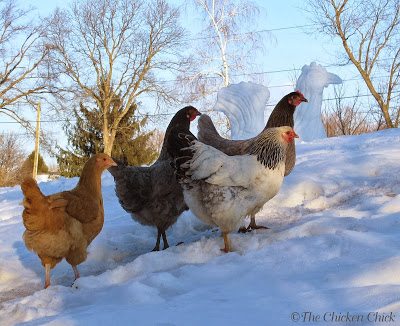
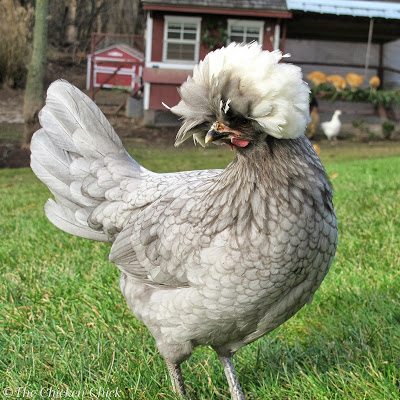

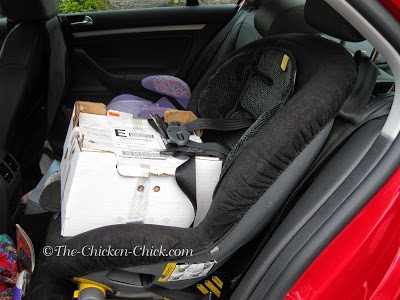
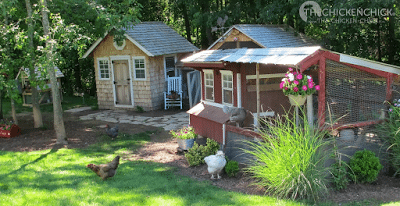
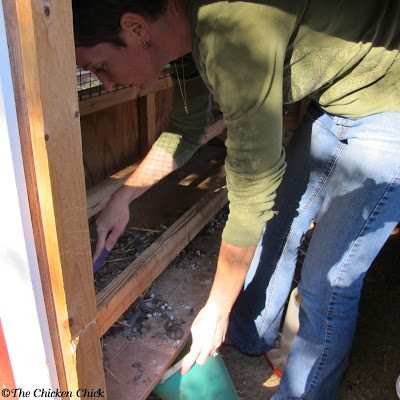

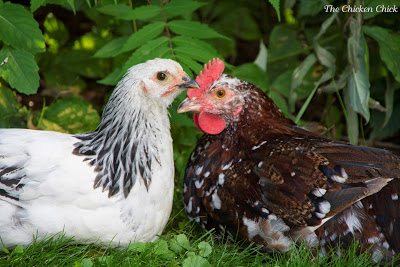

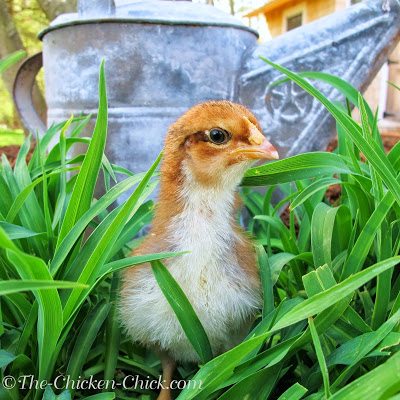

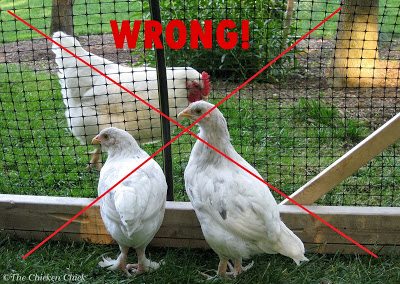
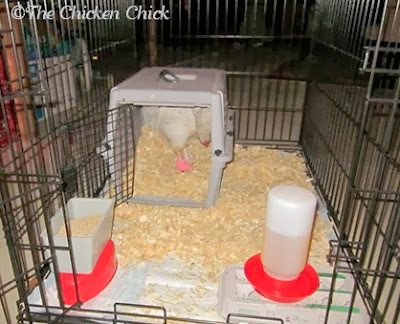

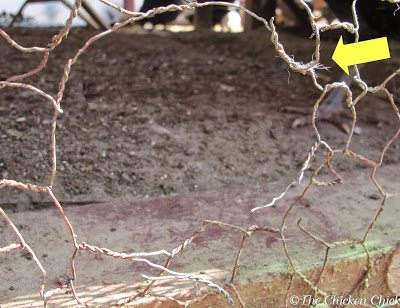

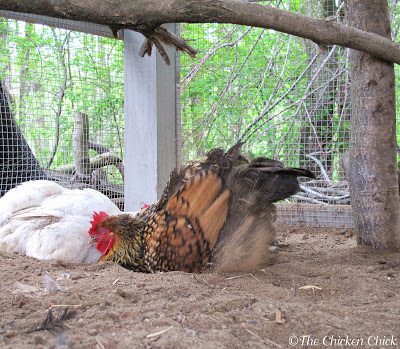
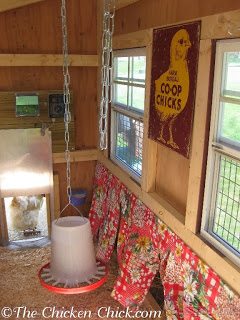
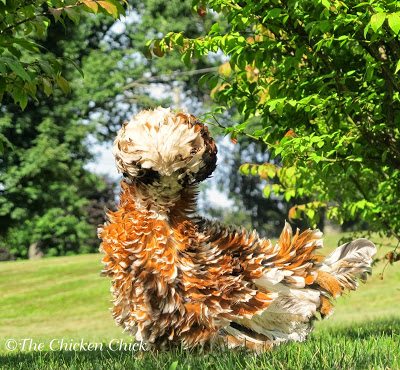
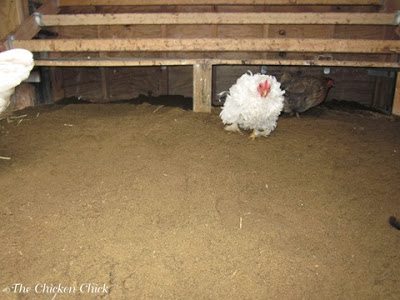
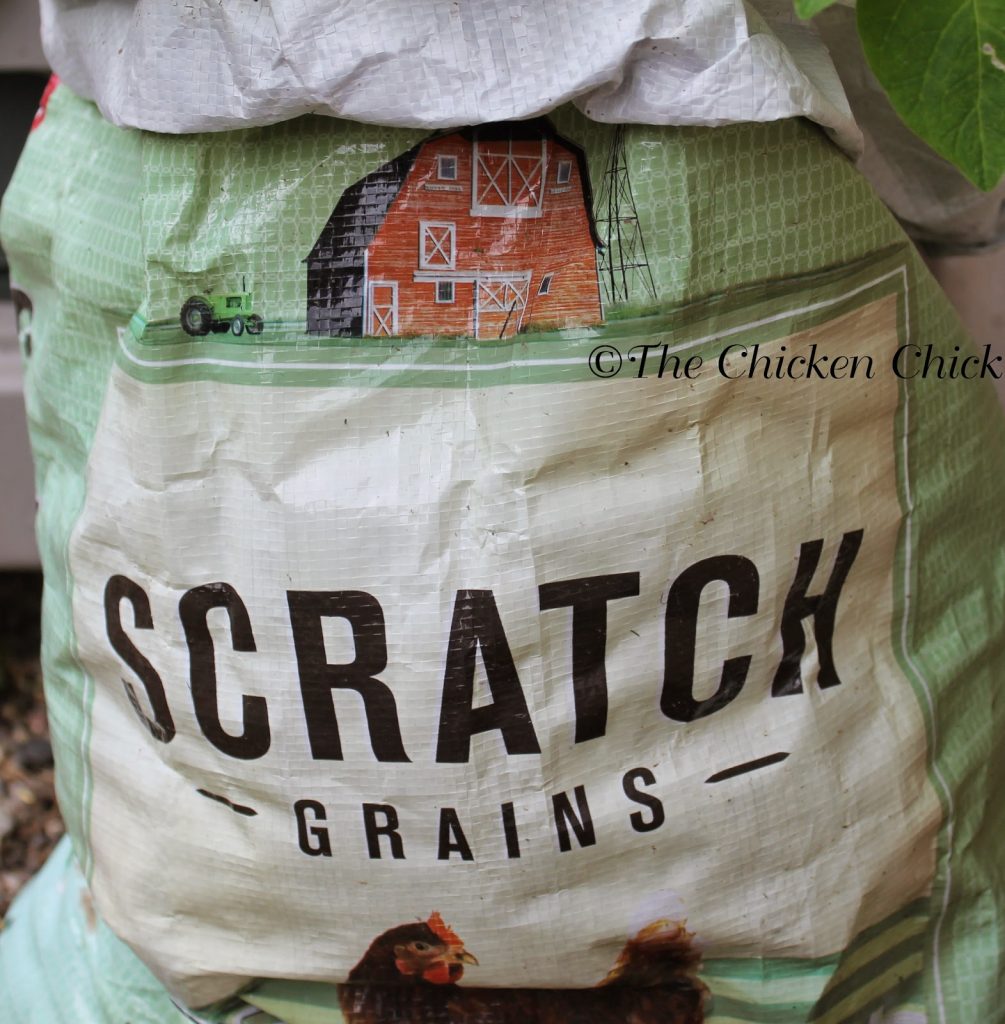
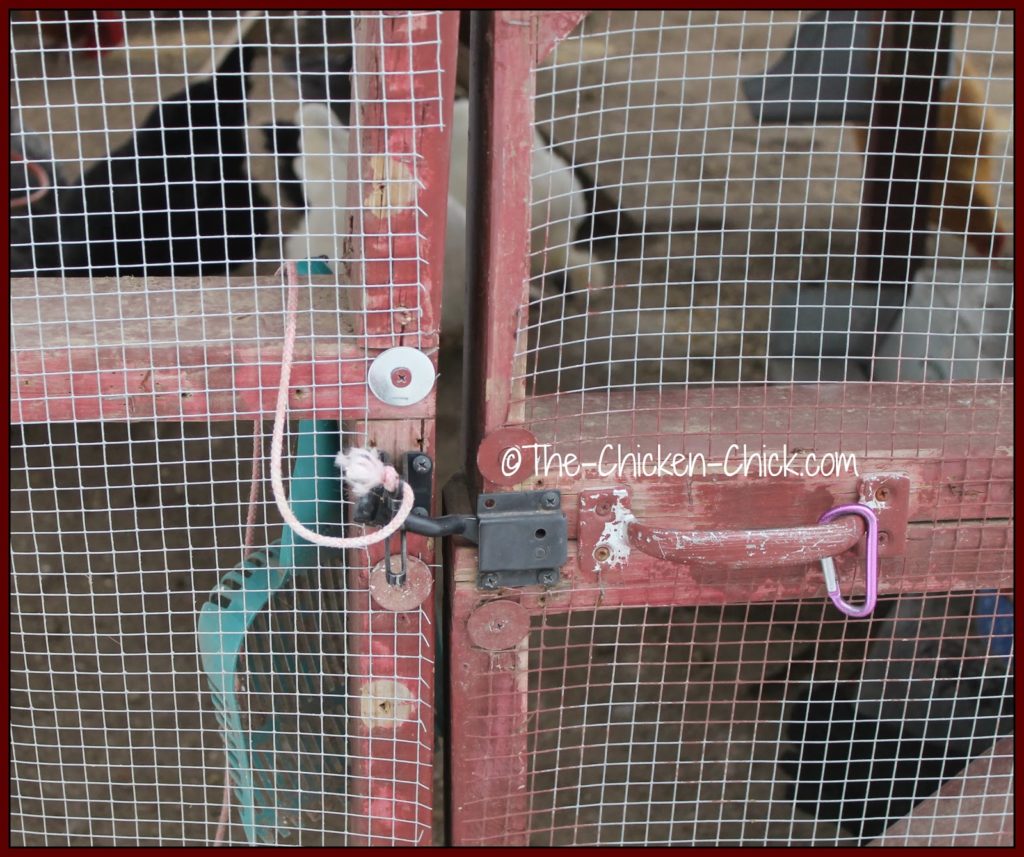

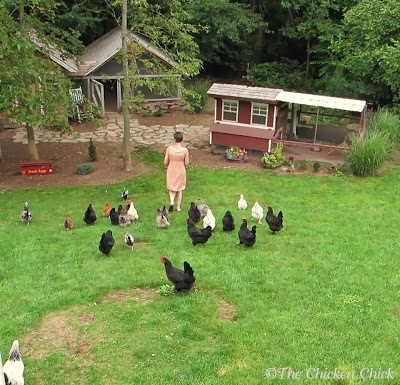
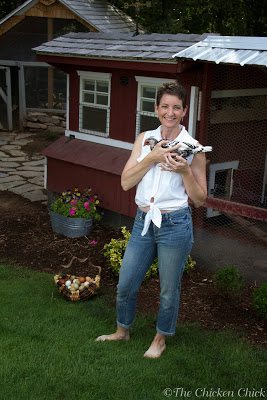






















We only ever fed ours inside the run, so if they were free ranging and we needed to pen them up, all we had to do was grab a bowl of feed or bring out scraps and they came running. easy-peasy.
Thanks very much :)
Wonderful article. I wish I had read it years ago. Almost every lesson you speak of I have learned the hard way. I am currently learning the rooster lessons of the chicken curriculum. We had an old rooster for years that we loved, he was always watching out for his hens and was kind and gentle with humans. He passed away a few months ago and we had two 7 month old roosters that made up the 10% error rate when we bought our last batch of chicks that we introduced to our hens. Neither are gentle or kind. They… Read more »
Amen! these are all great! my only addition is I wish I knew how loud (some) hens are at 6:30am. I knew about the egg song, i knew that they talked to one another, but the drive to get out of their coops first thing in the morning drives some insane and they feel the need to scream it to all neighbors within a two block radius. I wish I knew. My neighbors are glad I only have four.
I have a mixed flock of guineas and chickens. It is my second try to keep guineas. After trying to start a flock of guineas without chickens, I know realize that starting with keets and chicks as young as possible, together, is what worked the 2nd time around. The chickens taught the guineas where to go to roost at night, to come back to the coop etc. We know chicken behavior, and guinea behavior leans much more toward a wild bird. They are not domesticated, but they can be trained and somewhat tamed. I'd be happy to tell you more… Read more »